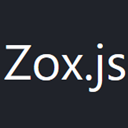The Best Nanoc Alternatives for Your Static Site Needs
Nanoc is a powerful and flexible static-site generator, adept at building everything from simple personal blogs to complex corporate websites. However, like any software, it might not be the perfect fit for every project or developer. Perhaps you're looking for a different language, a more opinionated framework, or a larger community. Whatever your reasons, exploring Nanoc alternatives can open up a world of possibilities for your next static site.
Top Nanoc Alternatives
If you're ready to explore other excellent static site generators that can serve as robust alternatives to Nanoc, you've come to the right place. We've compiled a list of top contenders, each offering unique strengths to cater to various development preferences and project requirements.

Jekyll
Jekyll is a popular and straightforward, blog-aware static site generator written in Ruby. As a free and open-source solution, it's available across Mac, Windows, Linux, and can be self-hosted. It's a great Nanoc alternative for those seeking a robust blogging platform with features like a built-in web server and a focus on publishing, making it ideal for content-heavy sites.

Hugo
Hugo is a remarkably fast and versatile general-purpose website framework for generating static web pages. Free and open-source, it runs on Mac, Windows, Linux, and can be self-hosted. Its speed and flexibility, along with features like a local server included and excellent publishing capabilities, make it a strong Nanoc alternative, particularly for large or frequently updated sites.

Pelican
Pelican is a static site generator built with Python, requiring no database or server-side logic. It's free, open-source, and self-hosted, making it an excellent Nanoc alternative for Python developers. Key features include being beginner-friendly, mobile-friendly, having a plugin API, and robust support for themes, offering a flexible and accessible development experience.

Hexo
Hexo is a fast, simple, and powerful blog framework powered by Node.js, boasting extensive plugin selections and a strong community. It's a free, open-source, and self-hosted solution, making it a great Nanoc alternative for JavaScript developers. Its features include Markdown support, no database requirement, and extensibility via plugins, providing a highly customizable environment for static site generation.

VuePress
VuePress emphasizes simplicity with a minimal setup and markdown-centered project structure, allowing you to focus on writing. It's free, open-source, and self-hosted, built on Vue.js. This makes it a compelling Nanoc alternative for developers familiar with the Vue ecosystem, offering a delightful development experience for static site generation, especially for documentation or content-focused sites.

Zola
Zola is a powerful static site engine provided as a single binary with no external dependencies. It's free, open-source, and self-hosted. As a comprehensive Nanoc alternative, Zola includes features like Sass compilation and syntax highlighting out-of-the-box, offering a highly efficient and self-contained solution for generating static websites.

MiddleMan
Middleman is a static site generator leveraging modern web development tools and shortcuts, making it a powerful Nanoc alternative for those in the Ruby on Rails ecosystem. It's free, open-source, and compatible with Mac, Windows, Linux, and BSD. Its focus on web development best practices makes it an excellent choice for complex, feature-rich static sites.

Staticman
Staticman brings user-generated content, like comments or reviews, to static sites, traditionally their Achilles' heel. It's free, open-source, and self-hosted. While not a direct static site generator like Nanoc, it acts as a crucial companion, enhancing static sites with dynamic capabilities, making it a valuable alternative for extending existing static site solutions.

Zox
Zox.js is a web framework for static sites and GraphQL API, offering greater flexibility than many other static site generators for building pages using Markdown and YAML. It's free, open-source, and available on Mac, Windows, Linux, and can be self-hosted. As a Nanoc alternative, it's ideal for developers looking for powerful static site generation combined with GraphQL API capabilities, supporting blogging, Markdown, and publishing.

Wemebox
Wemebox is a hybrid content management system that bridges the gap between traditional CMS like WordPress and static site generators like Hugo. It's free, open-source, and self-hosted. As a Nanoc alternative, Wemebox stands out for its focus on faster website creation and deployment, offering features like automatic SSL and portability, making it a compelling choice for streamlined web development and site building.
Choosing the right static site generator depends heavily on your specific project requirements, technical stack preferences, and desired level of flexibility. We encourage you to explore these Nanoc alternatives further, experiment with their features, and find the perfect fit to bring your next web project to life.